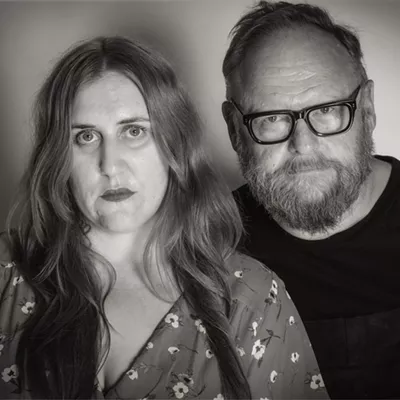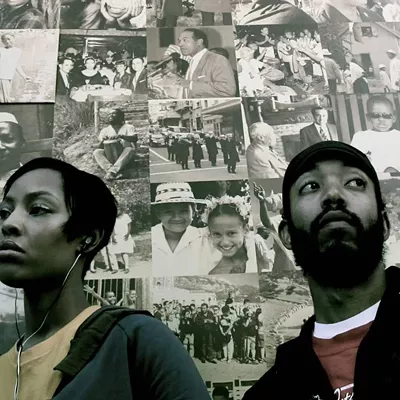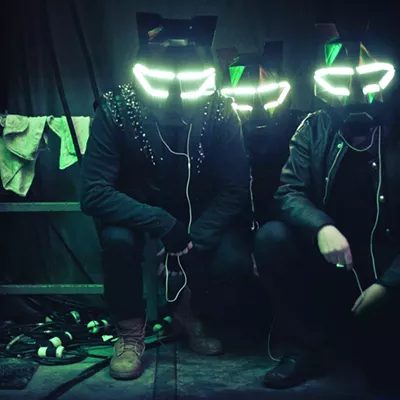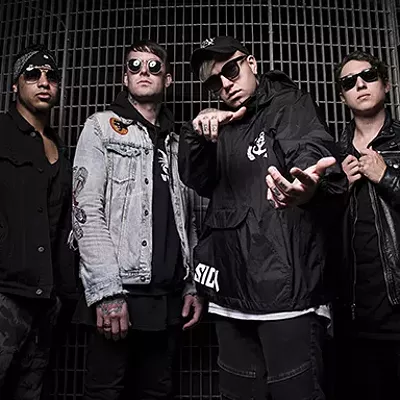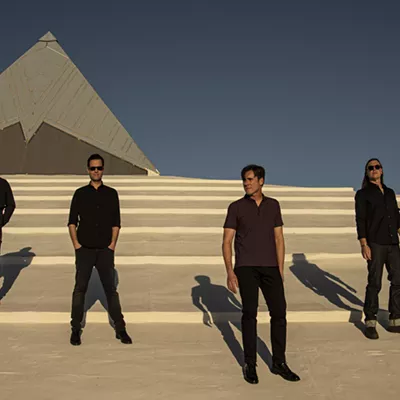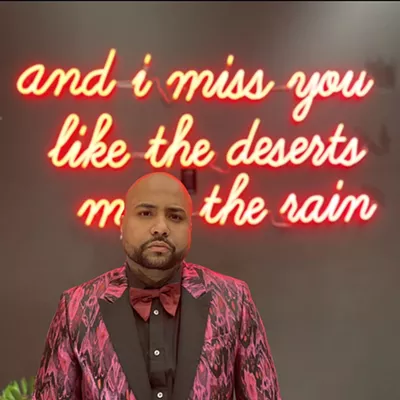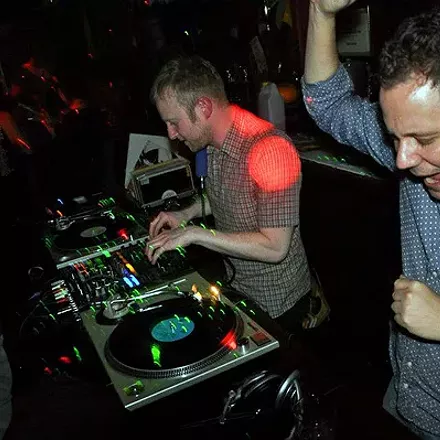It's almost alarming: Out of the din of the independent music world, replete with mediocrity and preciousness, arises a Bay Area band that taps into '90s-era California pop-punk (think Tilt, Screeching Weasel, Bracket, Jawbreaker, etc.) and makes it cosmopolitan and fresh. The May Fire's blend of Latin, punk and rock rhythms, and Spanish and English lyrics (two of the band members are Colombian; one is Chilean, and one is from Connecticut) infuse their songs with vivaciousness. It may be easier for a band to adhere to true DIY principles through the Internet and better availability of home-recording equipment, but that doesn't mean that every band who records some songs in their living room deserves a second listen. Luckily, though, it seems that even with so many, many, many bands competing for one's attention, the best ones will still prevail, and, perhaps, be even better than ever.
The May Fire's drummer and vocalist, El Pipe, agrees.
"I think that what is happening is that it's generating a lot of stuff out there, and there's a lot of bad stuff, but there's also a lot of good stuff, and it gets out there a lot better," he said. "And I think the good stuff tends to surface a lot more."
Perhaps it surfaces more because of the contrast, or because--despite the better availability of resources--a band has to work even harder to promote themselves and get attention in such a saturated market.
The May Fire's plan of attack is to wholeheartedly embrace their DIY aesthetic. They firmly believe that it's their way of approaching music that helps make it consistently energetic and relentlessly catchy. And they're right: Their dedication and investment is audible on their most recent EP, 2007's La Victoria. "Make It Right" erupts into the kind of infectious chorus Weezer can only wish for these days. Vocalist Catty Tasso goes from snark to sweet and back in "Animal Crackers," and the driving riff, Spanish lyrics and sparkling chorus of "Marcha" are a perfect definition of what is meant by a term like "pop-punk."
"Since we do everything on our own, and we don't have a set schedule, because the studio is in my house, a lot of the songs get written during the time we're recording," explained El Pipe. "A lot of the songs were written before, but a lot of them get written in the moment, and sometimes, one song leads to another. It's a weird chemistry."
But it's one that allows the band to transmit what El Pipe calls the band's "spontaneous raw energy" directly to tape. They're able to keep it going even beyond the recording of a song. Said El Pipe, "I think the raw energy happens so quickly that by the time we get to play the song live, it sometimes even morphs into something different than what we had on the record."
The May Fire are in a constant state of creation and production: La Victoria is the second in a trilogy of EPs that began with 2007's Plastic Army and will end with the final EP this summer.
"We wanted to do something that would get the music out there quicker," said El Pipe. "We're all passionate about albums and concepts and stuff, and we didn't want to lose that by just releasing singles or just songs all the time. That's why we decided to do the trilogy--so we could do three releases in one year, giving people music as fast as we could possibly operate, while we still maintain doing shows and everything that goes behind the band promotion."
Even more importantly, the three EPs make their process and their raw energy evident to their fans.
"The way I see it is that we're doing one book that has three chapters," said El Pipe.
Each EP can stand on its own thematically, but they make sense as a whole as well, even as they document the growth and development of the band in the last year, he explained.
And that's all a part of the appeal of The May Fire: Their songs wholeheartedly embrace all of their influences--rock in English, rock in Spanish, cumbia, bolero, punk, etc.--and turn them into pure musical energy.

